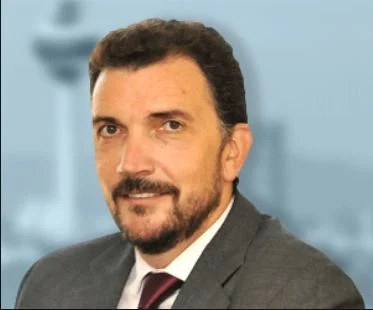José Manuel Velasco
Chair elect
Global Alliance for Public Relations and Communication Management
When I was a child, I dreamed of travelling all over the world. After reading a book called, "The Seven Wonders of the Ancient World", my imagination soared. At the time, the world comprised 130 countries, some grouped together around the idea of Europe, one that was extremely attractive to a Spaniard. A few decades later, the world is divided into more than 200 territories that have attained the category of states (193 are members of the United Nations) and another 60 are pursuing independence with the goal of achieving statehood.
Overall, the world has gotten smaller, more attainable, though more divided and no more equitable than when I leafed through the pages of that inspiring book. Geographically, the space shared by humanity has more borders, though distances and times have been reduced in all other senses. Thanks to the internet, any company, regardless of its size, can buy and sell anywhere in the world, provided bureaucratic frontiers allow it. Technology has torn down most of the walls that humanity still maintains.
How to explain this paradox: a world that insists on drawing new borders as technology dissolves them?
The first explanation that comes to mind is humanity's tribal nature. Rather than a single global tribe, we are a multitude of tribes sharing a space that in many senses, has become global. Globalisation has instilled fear in groups that feel underprepared to compete in this situation. In their eyes, the world is still too big to manage so they need the security of known frontiers of their mental space.
Miguel Otero Iglesias, chief researcher at Spain's Real Instituto Elcano, talks of a “rebellion against globalisation,“ which he attributes to five causes: growing inequality (especially in developed countries); advancing xenophobia; fear caused by technology change (especially job losses due to robotisation of industrial processes); protectionism driven by doubts about the sustainability of the welfare state; and the crisis of representative democracy. A plethora of concerns, uncertainties and fears whose most dramatic expression is the globalisation of terrorism.
A second explanation is that the competitiveness that globalisation demands drives a search for differentiating features. A territory needs a brand in order to compete with others, even in its own country. These territory-brands are built more of emotion than of reason. The key driver is pride in belonging, wrapped in a geographical, and above all, a cultural context.
The third explanation is that tribal fears are being exploited by nationalisms and populisms. These movements are heightening the discourse of fear, focused on defending jobs for locals, the people who "think like us". When a tribe is worried, it looks to its chief and, above all, it wants them to provide security. They want the confidence that their chieftain will face down the enemy with the ferocity of someone defending their loved ones, people who think like them. The certainty is that the chief will not hesitate to apply the classic values, and that morality that often begins and ends with oneself.
The crisis of the European Union as an idea and a project, the waning influence of the UN, questions raised about multilateral institutions, NATO's weak budget, and the failure to find agreement to resolve the drama in Syria all highlight the lack of a collective vision that can bring together diverse interests.
A world that is more fragmented, politically and morally, needs supranational initiatives and dialogue to overcome the divisions. Wherever there is conflict, a conversation is needed. And today, conflict is more the rule than the exception. The great challenges facing the planet cannot be addressed with local solutions — they need integrating visions imbued with generosity.
The Global Alliance for Public Relations and Communication Management expresses that integrating spirit in the scope of its industry. It is a modest contribution, but with a tremendous ambition to create spaces for dialogue. Communication is the most important tool for crossing borders, managing differences, and promoting a spirit of cooperation. Far from building walls, our professional tribe —the communicators— should focus on vaulting over them. The Global Alliance is one of our poles.

